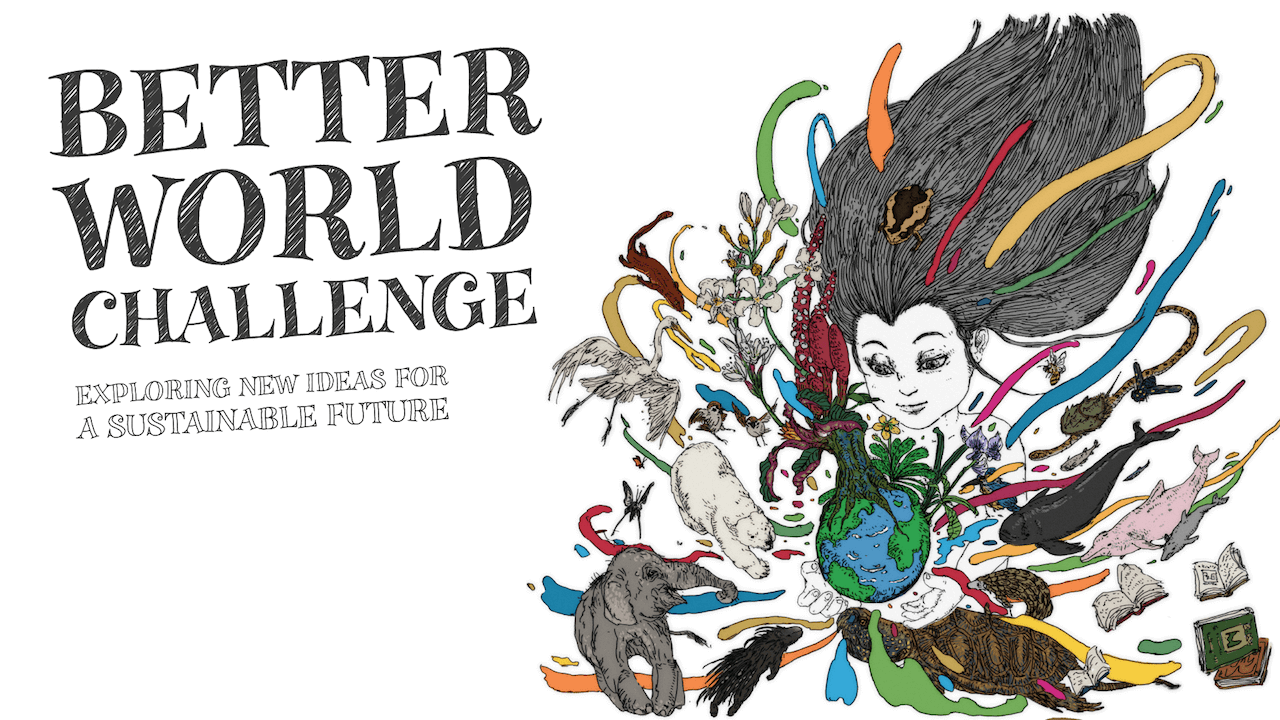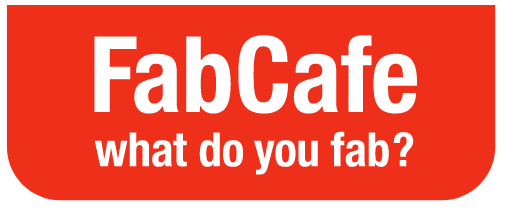Deadline for the Better World Challenge has been extended till March 21 !
Let's Design a Better World!
In this competition we are focusing on social and environmental challenges in Hong Kong and exploring solutions through community-driven innovation! We have selected four SDGs that we think are most relevant, and are seeking ideas from all over the world. We are hoping to receive many creative and original ideas.
Sustainable Development Goals
The Sustainable Development Goals (SDG’s) are a collection of 17 goals agreed upon by all 193 Member States at the United Nations General Assembly in 2015, and an urgent call for action.
Many challenges are facing humankind on a global scale including climate change and ocean pollution, while local challenges are affecting specific regions of the world, like extreme poverty and water scarcity. In every country the critical challenges are different, and so are the available resources to solve them.
Sustainable development is the advancement of our society to meet human needs and ambitions, maintaining economic growth across all industries, while simultaneously preserving the environment for future generations.
Entry Categories
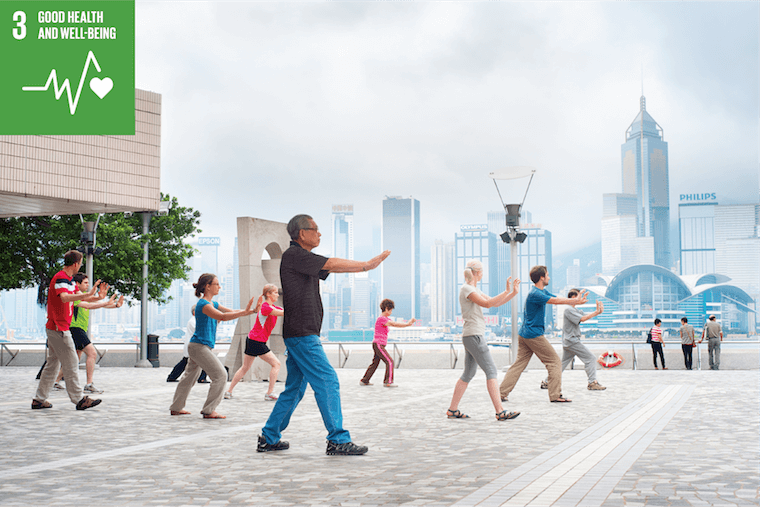
SDG #3 Good Health and Well-being
Hong Kong is ranked among the healthiest places in the world, due to low infant mortality rate, long life expectancy and efficient healthcare system (Wong & Leung, 2019). However, the city fares much worse when it comes to mental health. Inside the densely populated city, there are many people suffering from anxiety, depression and other mental disorders. The low mental health is affected by factors such as long working hours, severe air pollution, unaffordable housing, strict schools and political conflict. In addition, the consequences of the COVID-19 pandemic have taken a severe toll on both public health and mental well-being.
To enter this category, please respond to the following challenge statement:
How might we improve public health and mental well-being?
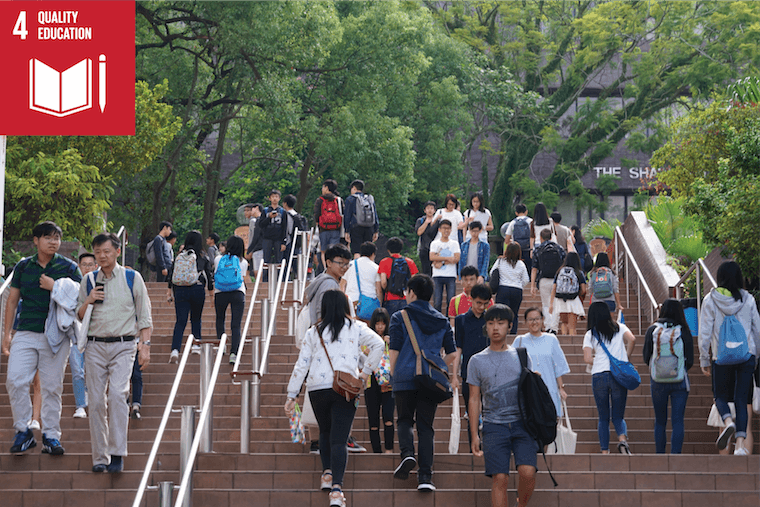
SDG #4 Quality Education
Education in Hong Kong is free and all children are required to attend nine years of compulsory education in primary and junior secondary schools. However, according to researchers at the University of Hong Kong, traditional educational practice and social influences of parents, teachers and the broader society impose immense pressure on students (Hu, Leung & Chen, 2018). Many parents push their children with high expectations of outstanding performance and academic results, and teachers have a tendency to focus on the learning outcomes and not the learning process. Local education has been described as spoon-fed and exam-oriented. As a result, students begin to lack the intrinsic motivation to learn.
To enter this category, please respond to the following challenge statement:
How might we support motivated learning?
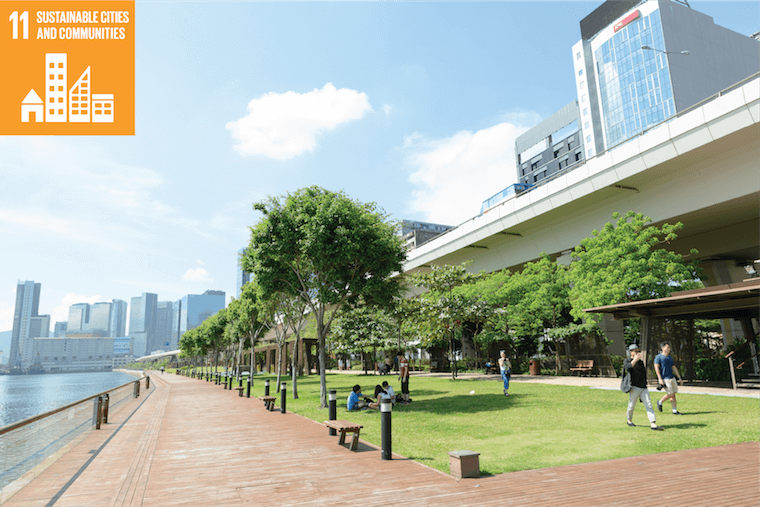
SDG #11 Sustainable Cities and Communities
Hong Kong has been ranked the least affordable housing market for the 10th year straight, as it takes the average family 20.8 years of savings to afford a home in the city (Demographia, 2020). As a result, many Hongkongers are forced to live in extremely small living spaces. For some, it can feel claustrophobic and suffocating, and open public spaces are needed to alleviate stress and breathe fresh air. Within this dense urban jungle, however, space is one of Hong Kong’s scarcest resources. For every resident there is only 2.7 square meters of open space compared to Singapore’s 7.4 and Seoul’s 6.1 square meters. The lack of open public spaces combined with small living spaces has a significant negative impact on both physical and mental health.
To enter this category, please respond to the following challenge statement:
How might we provide access to safe and inclusive green and public spaces?
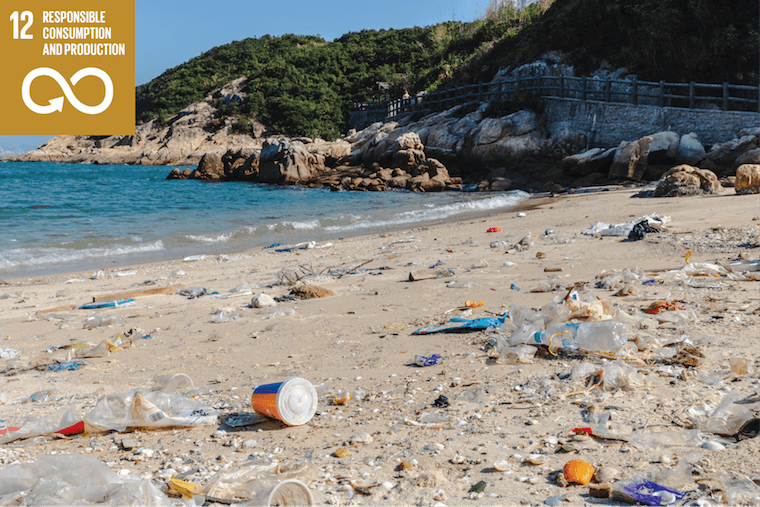
SDG #12 Responsible Consumption and Production
Hong Kong is facing a plastic waste crisis. More than 11,000 tonnes of municipal solid waste was dumped into landfills daily in 2018, including more than 2,300 tonnes of waste plastics. The Environmental Protection Department (EPD) has estimated that existing landfill sites will reach capacity this year, and up to 90 percent of local plastic recyclers are closing down due to shrinking market and poor collection services (Low, 2020). It is an urgent problem contributed by corporations, communities and households alike, and we need stronger incentives and effective methods to Reduce, Reuse and Recycle!
To enter this category, please respond to the following challenge statement:
How might we reduce waste production?
Submissions
Who should apply?
The challenge is recommended for innovators, entrepreneurs, designers and students.
If you have an idea to solve one of the challenges, please share it!
What is required to submit?
Submissions should respond to one of the challenge statements with an original idea.
- We accept works in any format, including simple sketches and prototypes.
- We accept works from both individuals, groups and business.
- We accept works from any location in the world.
- We accept early ideas, work in progress and already published works.
Find submission examples here!
Selection Criteria
One winning entry will be selected for each of the four entry categories. They will be selected by the jury based on the following criteria, weighed equally. These will ensure fairness among different types of submissions, and that winning entries are in line with the goals of the competition.
- Narrative
Please describe how your idea relate the challenge statement. Which personal thoughts or insights helped you to reach the solution idea? - Originality
How unique is the solution idea? Does it represent a new perspective on the problem? - Feasibility
Would the idea be considered feasible in practice? Have relevant factors such as economic, technical and legal aspects been taken into account? - Presentation
Is the presentation format effective at delivering the idea to the audience? And does the work have exceptional aesthetic or emotional qualities?
Winning Entries
The winning entries will be exhibited at FabCafe Hong Kong in Spring 2021 and be featured on the FabCafe Global Network, which includes a printed booklet and web article. As a small bonus, each winner will also receive 1.000 HKD.
All entries submitted will potentially gain exposure to collaborators and businesses internationally who may be interested in developing, sponsoring or manufacturing your works.
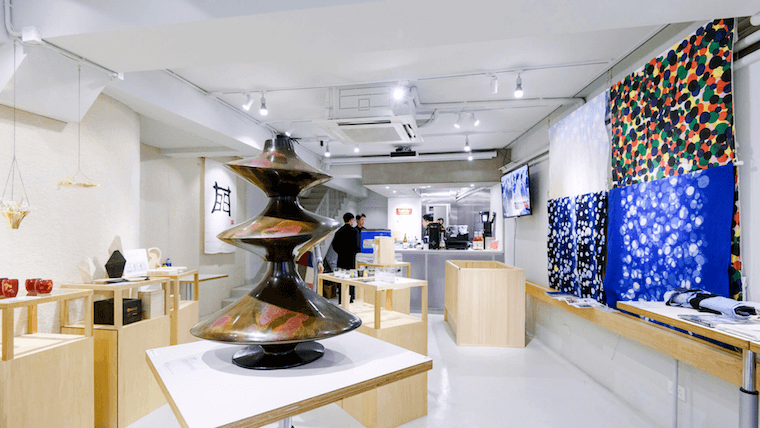
Schedule
| Entry Open | January 11, Monday 2021 |
| Deadline | March 21, Sunday 2021 |
| Results Announcement | March 2021 |
| Exhibition at FabCafe Hong Kong | Spring 2021 |
Judges
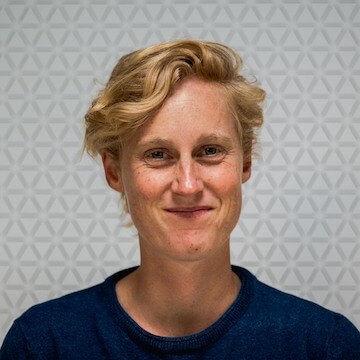
Anneke van Woerden
Impact Producer, Digital Society School Amsterdam
Anneke is an impact producer at Digital Society School Amsterdam, organizer of Global Goals Jam Amsterdam, designer at Makers Unite and unfold_it. Anneke believes designers should use their skills to create an impact on the world. In her work at Digital Social School, she focuses on people and process and is passionate about helping others to come up with great ideas.
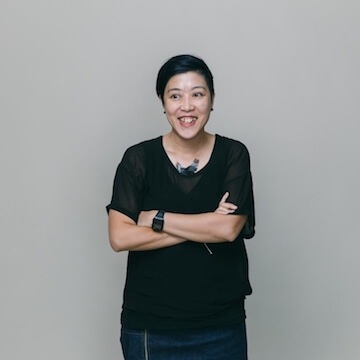
Yanki Lee
Director & Co-Founder, Enable Foundation
Dr Yanki LEE is an architectural designer, social innovator, design activist and expert in design research for social inclusion and participation. She has extensive experience collaborating with designers and enabling them to engage users in the design process. As an international speaker and writer, she has published over 50 peer-reviewed papers and articles. Dr Lee is also the director and co-founder of Enable Foundation, a non-profit social design collective with expertise in cross-generational co-creation and design researches for real-world impact.
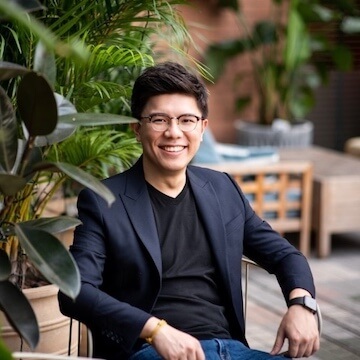
Warren Luk
CEO, Good Lab
Warren serves as CEO of Good Lab, a non-profit social innovation consultancy in Hong Kong dedicated to enabling social and public sector organisations to become innovative in addressing social and organisational issues through cross-sector collaboration and Design Thinking. Warren believes that everyone can be a changemaker and collaboration is fundamental to the creation of lasting social impact and positive vibes in our community.
